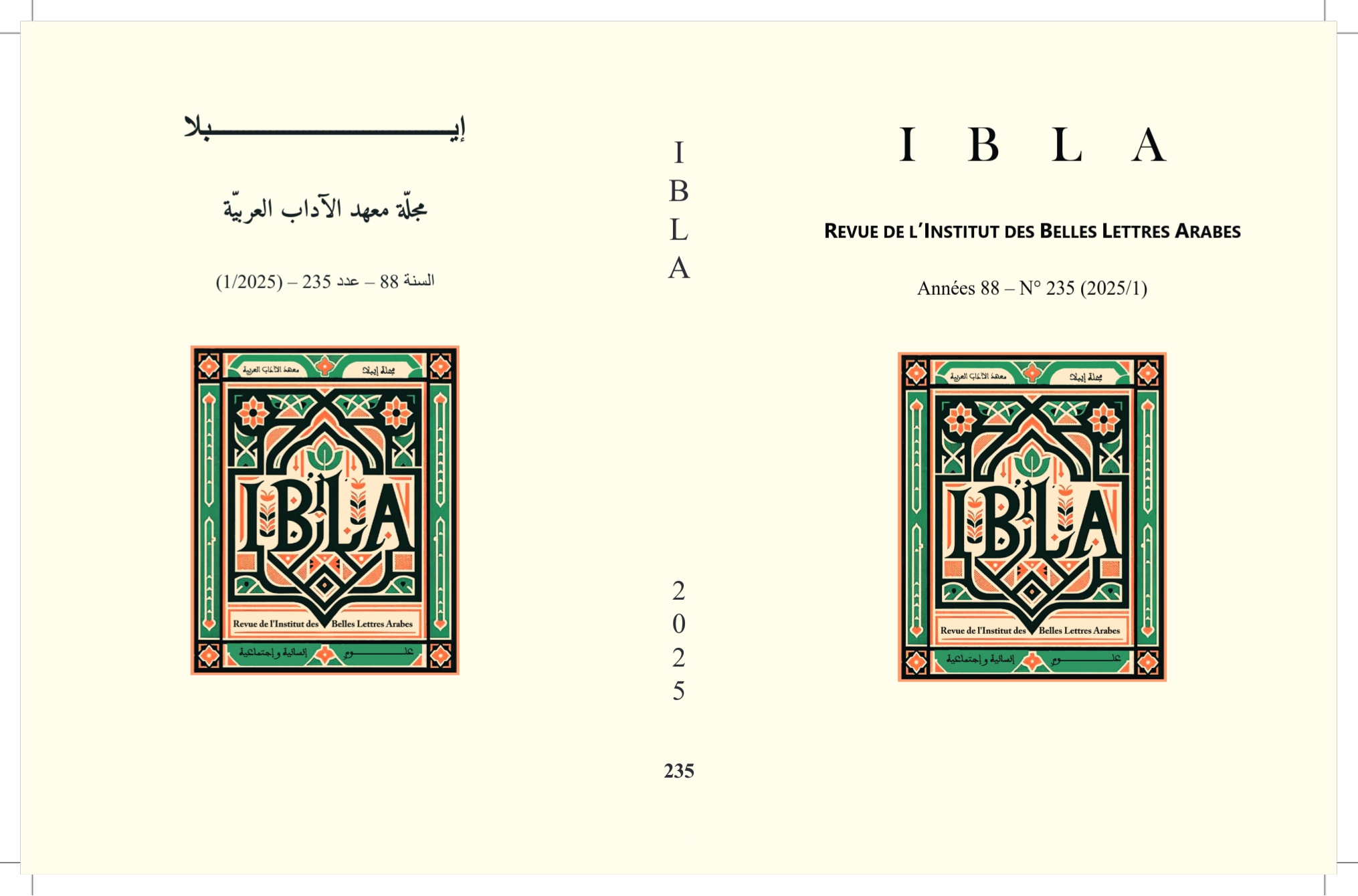The evolution of chancery and the status of scribes in the Hafsid makhzen
Keywords:
hafside kingdom, Abu Zakaria al-Hafsi, kàtib inshà; kàtib 'alàma, keteb serrAbstract
In the 13th century, the Hafsid sultans recruited scribes of Andalusian origin since they were heirs to the Umayyad kingdom in Andalusian. They were advisers to the sultans and reorganized the administration and had a key role in the evolution of the Hafsid chancellery. On the contrary, the 14th century is marked by the pre-eminence of scribes of Almohad origin. Like the Al-Tijani family. Also, the recruitment of scribes from the local community where scribes from East or West Ifriqiya. We note the weight of Constantine who alone provided nine scribes. From then on, the recruitment of scribes was done according to the geographical distribution and the evolution of the chancellery. As for the chancellery was less important monafidh or higàba.
References
Al-Andalusi (Abu Abdullah Mohamed ibn Mohamed), Al-Hilal al-Sindsiya fi al-Akhbar al-Tunisiya Tunis, Presse d'État tunisienne, 1287 H / 1870-1871, première édition
Al-Tijani (Abu Mohamed Abdullah ibn Mohamed ibn Ahmed), Al-Tijani's Journey Libya - Tunisia : Arabic Book House, 1981, non numéroté
Al-Qalqashandi (Abu al-Abbas Ahmed), Sobh al-A’sha, Le Caire : Egyptian Books House, 1922, S1
Al-Nifar (Mohamed), ‘onwan al-'Areeb 'Umma nashaa bedawla al-Tunisiya min ialim al-'Adeeb, appendice et exception par le fils de l'auteur, Al-Nifar (Ali), Beyrouth : Dar al-Gharb al-Islami,, 1996
Ibn al-Abbar (Abu Abdullah Mohamed ibn Abdullah ibn Abi Bakr al-Qa'adai), Etab al-Kutab, édité, commenté et introduit par Dr Al-Ashtar (Saleh) 1961, Damas : Arabic Language Society, première édition
Ibn al-Ahmar (Abi al-Walid), Mostawda’ al-'Alamah, mostabda’ al-'Allamah, enquête tunisienne (Mohamed al-Turki), ancien chef des honneurs à la cour tunisienne, et commentaire Tatawani (Mohamed bin Tawit), directeur de l'Institut Mou1988, Lai al-Hassan pour la recherche marocaine avec la contribution du Centre universitaire de recherche scientifique sous la tutelle de l'Institut Moulay al-Hassan : Rabat, 1624
Ibn Qunfudh (Abu al-Abbas Ahmed ibn Husayn ibn Ali ibn al-Khatib), Le persan dans les principes de l'État Hafside, présenté et étudié par al-Nifar (Mohammed al-Shazli), al-Turki (Abd al-Majid), Tunisie : Maison d'édition tunisienne, 2002
Ibn Khaldoun (Abdul Rahman), Introduction Histoire de l'Allama Ibn Khaldoun, Kitab al-Abr, Diwan al-Mubtada wa al-Khabar à l'époque des Arabes et de ceux qui étaient contemporains du grand sultan Bibliothèque et Dar al-Madinah pour l'édition et la distribution, Dar al-Qalam, Maison d'édition tunisienne, janvier 1984, première édition
Zarkashi (Abu Abdullah Mohamed ibn Ibrahim), Histoire des Etats Almohades et Hafsides édité et annoté par Madour (Mohamed), Tunis, Tunisie : 1966, deuxième édition
Fellali (Abdelaziz), "Les plus grands savants de Constantine et leur impact au Maghreb et au Levant à l'époque hafside", Revue des sciences humaines, numéro 1, n° 1, pp. 11-48.
Al-Tuwaili (Ahmed), La vie littéraire de la Tunisie à l'époque hafsie 600 - 950 H / 1204 - 1543 AD, Préface du Dr Bouaihi (Chadli) Manouba : Centre d'édition universitaire, 2014
Brunshwick (Robert), Histoire d’Ifriqiya à l'époque hafside, du XIIIe siècle à la fin du XVe siècle, traduit en arabe par Saheli (Hamadi), vol. 1, vol. 2, première édition, Beyrouth : Dar al-Gharb al-Islami, 1988.
Bachrouch (Toufik), La République des Deys en Tunisie 1591 - 1675 Collection des Journées du Peuple Ksar Said, Tunisie : Imprimerie Orbis, octobre
(Jadla) Ibrahim, La société urbaine en Afrique à l'époque des Hafsides en Tunisie : Publications de l'unité de recherche : Sud-Ouest, Histoire, Archéologie, Patrimoine et Société Institut supérieur d'études appliquées en sciences humaines de Gafsa, Université de Gafsa, janvier 2010






